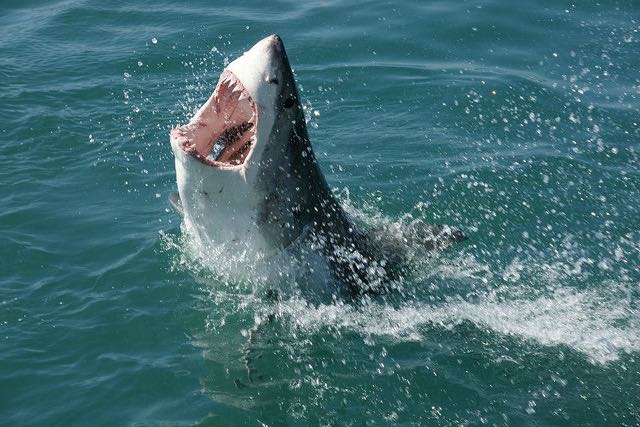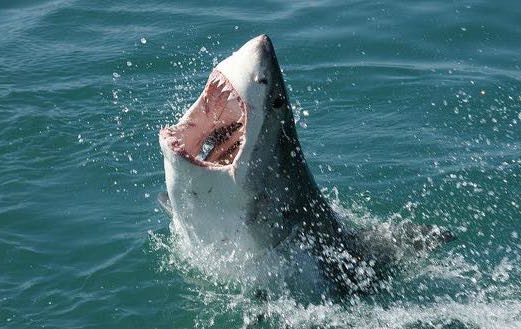
For decades, the decline of sharks – sought for their fins and meat – has been staggering. But bans on finning and new attitudes in Asia toward eating shark fin soup are leading to optimism about the future for these iconic ocean predators.
Along with the economic boom in China and other Asian countries came the ability for millions to afford shark fin soup. As more sharks were harvested to feed that appetite, it became clear to scientists how vital these top-predators were for the entire ocean ecosystem – from algae to sea-grass, turtles to tuna.
In the last year, there’s been some good news leading conservationists to believe that the tide for struggling sharks, at last, may be turning.
Man Expertly Grabs Pelican to Save it From Almost Certain Death (WATCH)
Global fin trade is declining. The U.S., European Union, and India, along with close to 100 other nations from the Mideast to the Caribbean, have banned finning — the practice of catching sharks solely to harvest fins. Some of those countries, like New Zealand, were huge exporters.
China, Hong Kong and Malaysia have all banned the soup at government functions, five hotel chains have taken it off their menus and 26 airlines have refused to transport shark fins. On a recent survey in China 85% of respondents said they no longer ate shark fin soup. In fact, so many people have lost their appetite for shark, that the fins are as cheap as squid — essentially destroying the market for them in some parts of China.
Transforming Lion Killers into ‘Lion Guardians’ in Africa
A preeminent marine biologist praised a turnaround in US fisheries management in the last decade, saying officials have basically altered their direction on shark management 180 degrees, calling new policies “among the best in the world.” Sharks are also bolstered by pledges from 205 marinas and 103 other businesses around the globe to forbid or discourage the offloading of dead sharks.
Even as sharks recover in some waters they’re getting hammered when they migrate to countries that don’t manage them, so nations and conservationists need to continue pushing for tough regulations to make sure the tide keeps turning for these crucial top-level predators.
(Source: Yale 360, March 2015, from a feature by Ted Williams) – Photo by Travel Bag Ltd (travelbag.co.uk), CC license




















